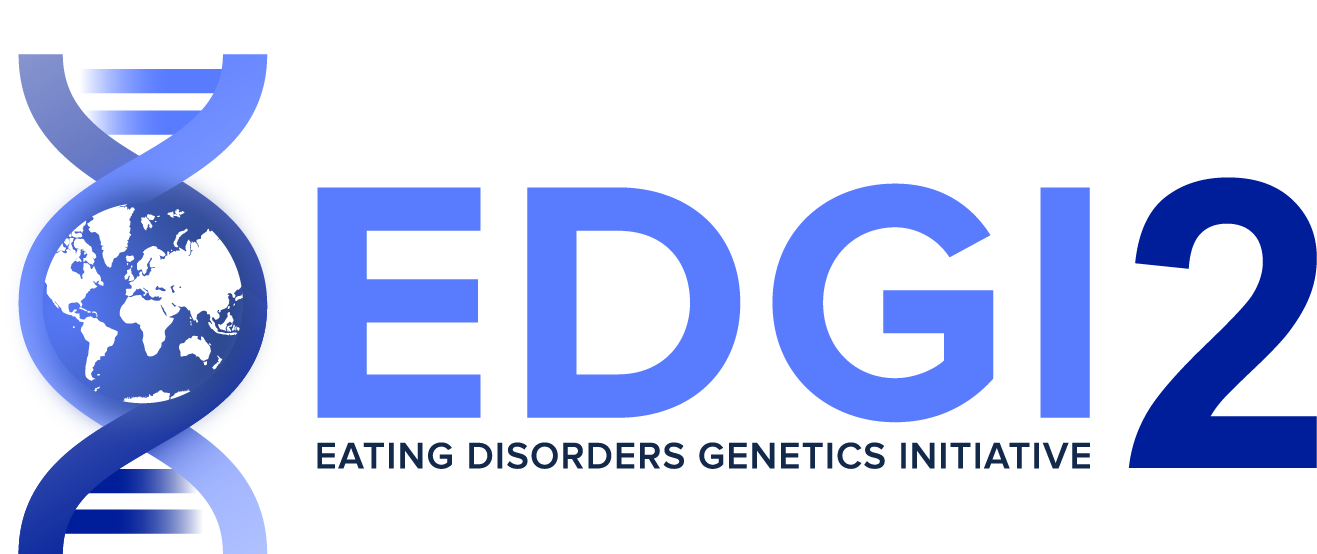Unlocking the genetic code of eating disorders: inside EDGI2
The Eating Disorders Genetics Initiative 2 (EDGI2) is rewriting the future of eating disorder research, one gene at a time. As the largest genetic investigation into eating disorders ever conducted, EDGI2 is an ambitious global project that aims to crack the genetic code behind anorexia nervosa, bulimia nervosa, binge-eating disorder, and Avoidant Restrictive Food Intake Disorder (ARFID).
With eating disorders affecting millions worldwide and having one of the highest mortality rates of any psychiatric illness, the need for more effective, personalised treatment options has never been greater. EDGI2 is stepping up to meet that challenge.
Why EDGI2 matters
EDGI2 builds on the ground-breaking success of the original EDGI and the Anorexia Nervosa Genetics Initiative (ANGI). Those studies led to the discovery of the first eight genes associated with anorexia nervosa, revealing a surprising and critical link between psychiatric and metabolic causes. That discovery sparked a new understanding of eating disorders and set the stage for EDGI2’s expanded research.
Now, researchers are aiming even higher-hoping to identify hundreds of genes that influence the risk of developing an eating disorder. This expanded genetic roadmap will revolutionise treatment, prevention, and diagnosis, and could ultimately help save lives.
A global effort led by experts
EDGI2 is a truly international collaboration involving research centres in Australia, New Zealand, the United States, Mexico, the United Kingdom, and Denmark.
The Australian arm of the study is led by Professor Nick Martin, a geneticist at QIMR Berghofer in Brisbane, alongside Professor Sarah Maguire OAM from the InsideOut Institute in Sydney. On a global level, the study is headed by Professor Cynthia Bulik, a world-renowned clinical psychiatrist and Distinguished Professor of Eating Disorders at the University of North Carolina, USA.
Together, these teams are working to recruit more than 4,000 Australians with lived experience of eating disorders, alongside a control group of adults aged 40 and above who have never had an eating disorder.
How the research works
Participants who join the EDGI2 study will:
- Complete a 15–20-minute online survey
- Provide a saliva sample (a kit will be mailed to eligible participants)
- Consider completing additional modules about their experiences with mood, treatment and personality.
Researchers will extract DNA from the saliva samples and conduct what’s known as a genome-wide association study (GWAS). By comparing the genetic code of those who have experienced eating disorders to those who haven’t, scientists can pinpoint the specific genes that may increase risk, influence treatment response, or interact with other mental and physical health conditions.
This data will also shed light on the genetic links between eating disorders and other co-occurring conditions like depression, anxiety, substance use disorders, and metabolic issues.
Why your participation matters
If you’ve ever experienced an eating disorder, or if you’re 40+ and have never had one, your involvement in EDGI2 can help researchers uncover the biological roots of these devastating illnesses. It’s a chance to make a lasting difference in how we understand, treat, and prevent eating disorders- not just in Australia, but around the world.
All participant information is strictly confidential and protected by the Commonwealth Privacy Act (1988) and the National Health and Medical Research Council (NHMRC) Guidelines.
Be part of the solution
The science is clear: genetics matter, and your DNA could hold the key to unlocking better treatments and a brighter future for those living with eating disorders.
By participating in EDGI2, you will not only be helping researchers- you’ll be helping people to heal.
To learn more and sign up head to edgi2.org.au or email edgi2@qimrb.edu.au to be a part of this life-changing research.










